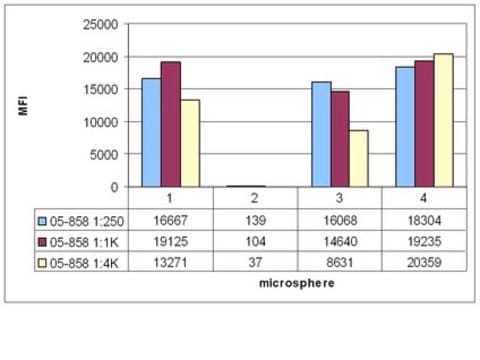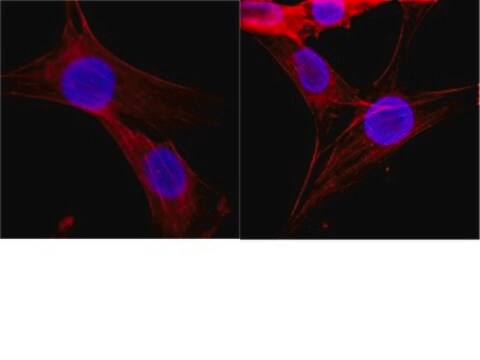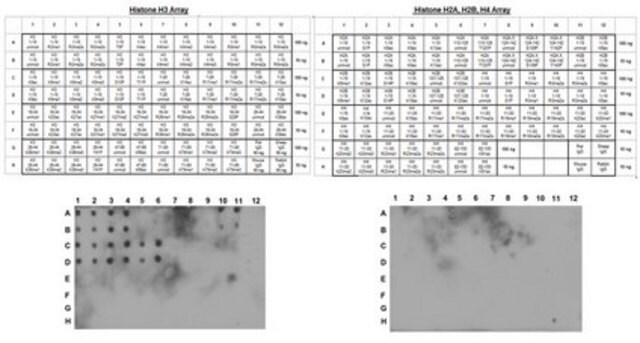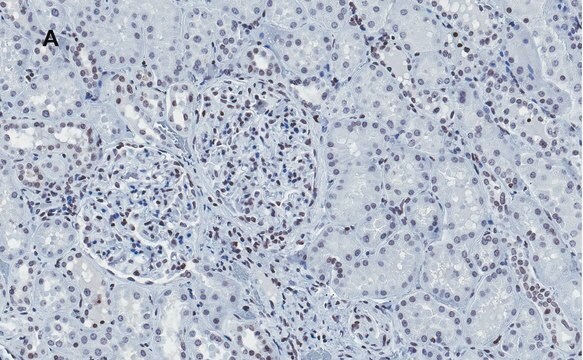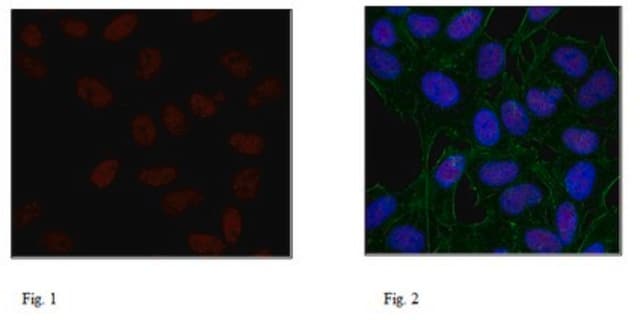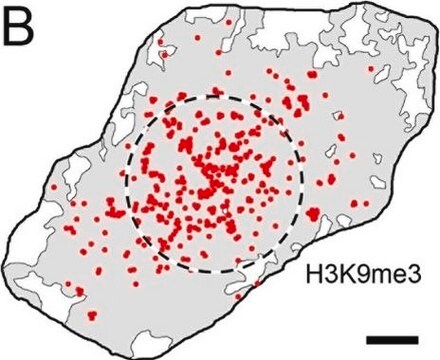05-858R
Anti-Histone H4 Antibody, pan, clone 62-10C-2, rabbit monoclonal
clone 62-10C-2, from rabbit
Synonym(s):
H4, Histone H4, H4 histone family, member A, histone 1, H4a, histone cluster 1, H4a
About This Item
Recommended Products
biological source
rabbit
Quality Level
antibody form
culture supernatant
antibody product type
primary antibodies
clone
62-10C-2, monoclonal
species reactivity
human
technique(s)
western blot: suitable
isotype
IgG
NCBI accession no.
UniProt accession no.
shipped in
dry ice
target post-translational modification
unmodified
Gene Information
human ... H4C1(8359)
General description
Specificity
Immunogen
Application
Quality
Western Blot Analysis: 0.1 µg/ml of this antibody detected histone H4 in 10 µg of HeLa cell lysate.
Target description
Physical form
Not finding the right product?
Try our Product Selector Tool.
recommended
Storage Class Code
12 - Non Combustible Liquids
WGK
WGK 1
Flash Point(F)
Not applicable
Flash Point(C)
Not applicable
Certificates of Analysis (COA)
Search for Certificates of Analysis (COA) by entering the products Lot/Batch Number. Lot and Batch Numbers can be found on a product’s label following the words ‘Lot’ or ‘Batch’.
Already Own This Product?
Find documentation for the products that you have recently purchased in the Document Library.
Our team of scientists has experience in all areas of research including Life Science, Material Science, Chemical Synthesis, Chromatography, Analytical and many others.
Contact Technical Service